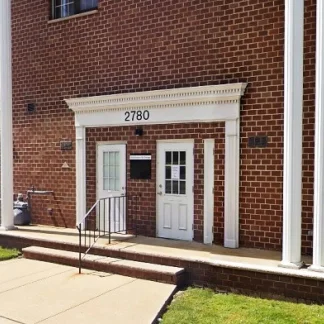The Lennard Clinic
The Lennard Clinic stands as a CARF-accredited substance abuse rehab center in N...
Summit Behavioral Health Union is in New Jersey and offers intensive and non-intensive outpatient programs that are tailored to each individual's needs, allowing clients to continue work and family responsibilities.
Summit Behavioral Health – Morris Avenue believes that long term success requires extending treatment therapies, sometimes long after detox and residential treatment is over.
Their outpatient treatment is available as an affordable and effective program for those in long term care.
Outpatient Treatment and Therapy Programs Include: Individual and Group Therapy, Educational Programs, Ongoing Support and Family Counseling. Summit offers flexible outpatient schedules that may include daytime, evening or weekend sessions. Outpatient Treatment Programs are Ideal for Those Who: require minimal disruption to their current lifestyle. are able to self-regulate their time and exposure to substance abuse and wish to keep their participation in a recovery program private or anonymous.
Contact us for more information: (254) 938-6377

Connect with Summit Behavioral Health Union by calling their admissions team directly.
(254) 938-6377 Website Get DirectionsThe Joint Commission, formerly known as JCAHO, is a nonprofit organization that accredits rehab organizations and programs. Founded in 1951, the Joint Commision's mission is to improve the quality of patient care and demonstrating the quality of patient care.
Joint Commission Accreditation: Yes Accreditation Number: 568647
Cognitive Behavioral Therapy (CBT) is a therapy modality that focuses on the relationship between one's thoughts, feelings, and behaviors. It is used to establish and allow for healthy responses to thoughts and feelings (instead of unhealthy responses, like using drugs or alcohol). CBT has been proven effective for recovering addicts of all kinds, and is used to strengthen a patient's own self-awareness and ability to self-regulate. CBT allows individuals to monitor their own emotional state, become more adept at communicating with others, and manage stress without needing to engage in substance abuse.
Research clearly demonstrates that recovery is far more successful and sustainable when loved ones like family members participate in rehab and substance abuse treatment. Genetic factors may be at play when it comes to drug and alcohol addiction, as well as mental health issues. Family dynamics often play a critical role in addiction triggers, and if properly educated, family members can be a strong source of support when it comes to rehabilitation.
Group therapy is any therapeutic work that happens in a group (not one-on-one). There are a number of different group therapy modalities, including support groups, experiential therapy, psycho-education, and more. Group therapy involves treatment as well as processing interaction between group members.
In individual therapy, a patient meets one-on-one with a trained psychologist or counselor. Therapy is a pivotal part of effective substance abuse treatment, as it often covers root causes of addiction, including challenges faced by the patient in their social, family, and work/school life.
Research clearly demonstrates that recovery is far more successful and sustainable when loved ones like family members participate in rehab and substance abuse treatment. Genetic factors may be at play when it comes to drug and alcohol addiction, as well as mental health issues. Family dynamics often play a critical role in addiction triggers, and if properly educated, family members can be a strong source of support when it comes to rehabilitation.
Group therapy is any therapeutic work that happens in a group (not one-on-one). There are a number of different group therapy modalities, including support groups, experiential therapy, psycho-education, and more. Group therapy involves treatment as well as processing interaction between group members.
In individual therapy, a patient meets one-on-one with a trained psychologist or counselor. Therapy is a pivotal part of effective substance abuse treatment, as it often covers root causes of addiction, including challenges faced by the patient in their social, family, and work/school life.
Group therapy is any therapeutic work that happens in a group (not one-on-one). There are a number of different group therapy modalities, including support groups, experiential therapy, psycho-education, and more. Group therapy involves treatment as well as processing interaction between group members.
In individual therapy, a patient meets one-on-one with a trained psychologist or counselor. Therapy is a pivotal part of effective substance abuse treatment, as it often covers root causes of addiction, including challenges faced by the patient in their social, family, and work/school life.
In individual therapy, a patient meets one-on-one with a trained psychologist or counselor. Therapy is a pivotal part of effective substance abuse treatment, as it often covers root causes of addiction, including challenges faced by the patient in their social, family, and work/school life.
The Lennard Clinic stands as a CARF-accredited substance abuse rehab center in N...
Situated in Irvington, New Jersey, New Hope Behavioral Health Center is a drug a...
Elizabeth VA Outpatient Clinic provides Mental Health Services in an outpatient ...
Main Street Counseling is a private rehab located in West Orange, New Jersey. Ma...